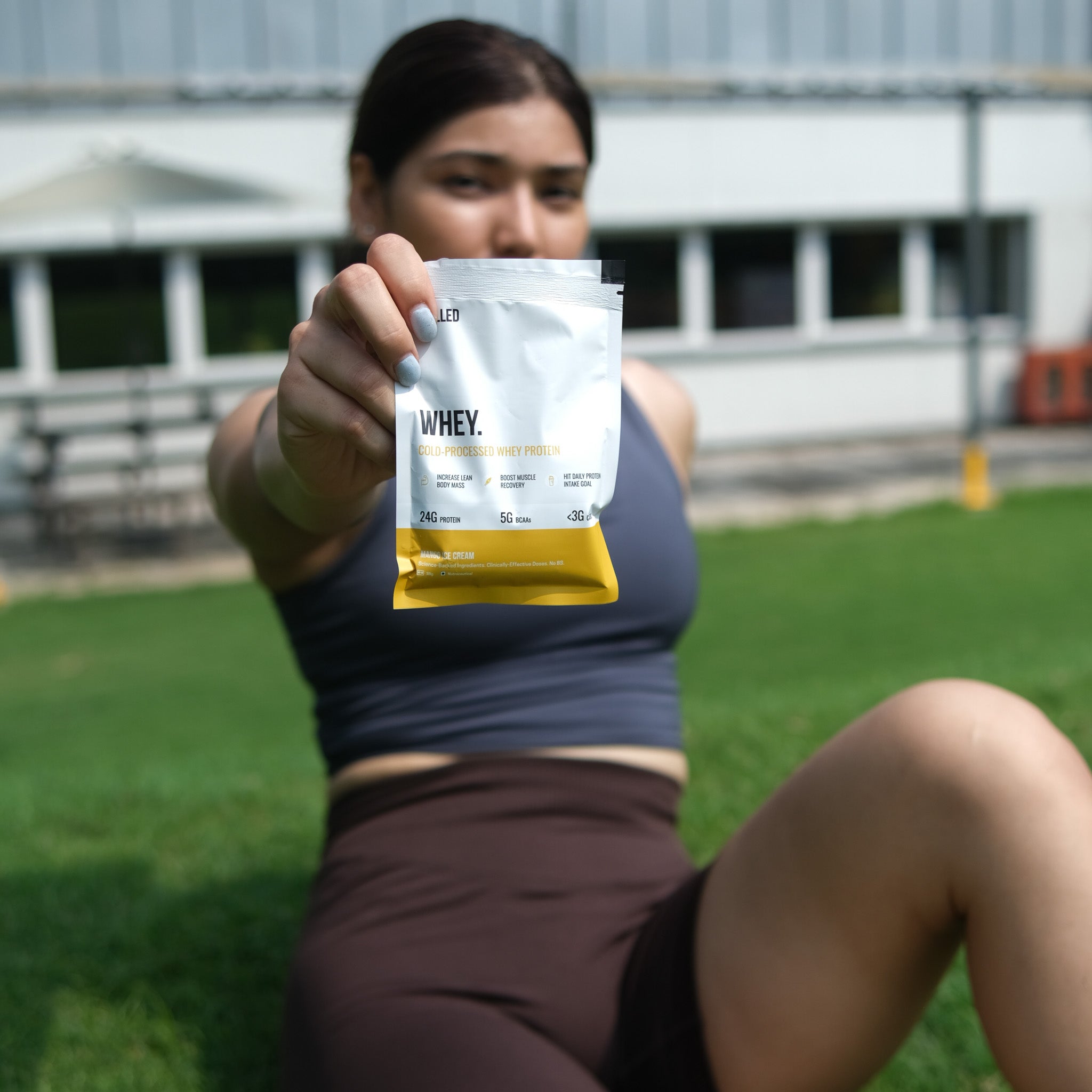whey protein description
Whey protein is a widely popular dietary supplement derived from milk during the cheese-making process. It is a complete protein, meaning it contains all nine essential amino acids essential for human health. Whey protein is packed with a variety of nutrients, making it a staple choice among athletes, bodybuilders, and fitness enthusiasts or anyone that wants to increase the protein intake in their diet inorder to maintain lean muscle.
Whey protein is a high-quality protein derived from whey, the liquid by-product obtained during the cheese-making process. It is a complete protein, meaning it contains all nine essential amino acids that the human body cannot produce on its own and must obtain through the diet. Whey protein is considered a fast-digesting protein, which means it is broken down and absorbed by the body relatively quickly compared to other protein sources.
Whey protein is packed with a variety of nutrients, making it a staple choice among athletes, bodybuilders, and fitness enthusiasts or anyone that wants to increase the protein intake in their diet inorder to maintain lean muscle. Though it is not necessary to have Whey protein to build and maintain muscle mass, it is an easy and convenient way to increase your protein intake. Remember, to increase your muscle mass, you need at least 1.4 grams of protein per bodyweight; this can be obtained via natural food sources such as eggs, chicken, legumes, etc. or via nutritional supplements like whey protein.
Whey protein comes in various forms, including powders, shakes, bars, and ready-to-drink beverages. The powder form is the most popular and versatile, as it can be easily mixed with water, milk, or other liquids to create a protein-rich drink. It is available in various flavours to suit individual preferences. It is also very convenient as it can be carried anywhere in single serve sachets or in a shaker while travelling, at home or in any other place. It can also be used in creating delicious recipes in order to give any dish an extra kick of protein.
In addition to its popularity among athletes and fitness enthusiasts, whey protein is also commonly used as a got-to source of protein for anyone looking to supplement their diet with adequate protein intake. It can be particularly beneficial for individuals with increased protein needs due to factors such as age, illness, specific dietary requirements or any one looking to add lean muscle mass to their bodies in order to improve strength and conditioning.
What are the health benefits of whey protein?
Whey protein is a science-backed powerhouse supplement, providing a complete source of high-quality protein with a rich amino acid profile. Its rapid digestibility, immune-boosting properties, and potential for weight management make it a valuable asset for individuals pursuing fitness goals and overall well-being. Incorporating whey protein into a balanced diet, especially after exercise, can maximise its benefits and enhance workout results for athletes and fitness enthusiasts alike.
Here’s a list of the healthy benefits of whey protein:
- Muscle Building and Repair: Whey protein is a rich source of essential amino acids, especially branched-chain amino acids (BCAAs), such as leucine, isoleucine, and valine. BCAAs play a crucial role in stimulating muscle protein synthesis, promoting muscle growth, and aiding in the repair of damaged muscle tissue after exercise. Consuming whey protein post-workout can help maximise muscle recovery and support muscle-building efforts in individuals engaging in resistance training or intense physical activities.
- Weight Management: Whey protein is highly satiating, meaning it promotes a feeling of fullness and helps control appetite. By reducing hunger and cravings, whey protein can assist in managing calorie intake and supporting weight loss or weight maintenance goals. Including whey protein in a balanced diet may contribute to better weight management outcomes.
- Immune System Support: Whey protein contains immunoglobulins and lactoferrin, which possess immune-enhancing properties. These bioactive components can help strengthen the immune system, making it more effective in fighting off infections and illnesses. Regular consumption of whey protein may contribute to improved overall immune health, especially during periods of increased physical stress.
- Management of Type 2 Diabetes: Studies have suggested that whey protein consumption can help improve blood sugar control and insulin sensitivity in individuals with type 2 diabetes. Whey protein may promote the secretion of insulin and stimulate the uptake of glucose by cells, resulting in better glycemic control.
- Cardiovascular Health: Regular intake of whey protein has been associated with modest improvements in certain cardiovascular risk factors, such as blood pressure and cholesterol levels. Whey protein's potential to promote better heart health may be attributed to its beneficial effects on blood vessel function and the regulation of lipid metabolism.
- Exercise Performance: Whey protein supplementation can improve exercise performance and endurance. BCAAs in whey protein may delay the onset of fatigue during prolonged physical activities, enabling individuals to perform better and for longer durations.
- Bone Health: Some research suggests that whey protein, along with adequate calcium intake, may have a positive impact on bone health in older adults. The combination of whey protein and calcium may help preserve bone mass and reduce the risk of osteoporosis.
Thus, Whey Protein can benefit you in many ways than just helping you build lean muscle mass. It is an essential component of a healthy diet and can help you hit your protein macros easily.
What are the types of Whey Protein?
Depending on the processing methods and filtration techniques used, whey protein can be classified into three main types: whey protein concentrate, whey protein isolate, and whey protein hydrolysate. In this article, we will delve into the science behind each type of whey protein to understand their differences and potential benefits.
- Whey Protein Concentrate: This is the least processed form of whey protein, containing a lower percentage of protein compared to other types. It typically contains around 70-80% protein, with the remaining composition comprising carbohydrates (lactose), fats, and minerals. Whey Protein Concentrate retains more of the natural components found in whey, including immunoglobulins and lactoferrin, which contribute to its potential immune-boosting properties.
- Whey Protein Isolate: Whey protein isolate is a more processed form of whey protein, undergoing additional filtration steps to remove a higher percentage of carbohydrates, fats, and minerals. It typically contains around 90% or more protein, making it the most concentrated form of whey protein available. The additional processing results in a purer protein source with lower levels of lactose, making it a preferred choice for individuals with lactose intolerance or those seeking a protein supplement with minimal carbohydrates and fats.
- Whey Protein Hydrolysate: Whey protein hydrolysate undergoes a process called hydrolysis, where the proteins are partially broken down into smaller peptides and amino acids. This pre-digestion process makes Whey Protein Hydrolysate the most rapidly absorbed form of whey protein. The smaller peptide chains in Whey Protein Hydrolysate are hypothesised to lead to faster digestion and absorption, making it an ideal option for individuals looking for quick delivery of amino acids to support muscle recovery and growth.
Key Characteristics of Whey Protein Concentrate: Contains a lower percentage of protein, making it less concentrated than Whey Protein Isolate and Whey Protein Hydrolysate. Contains higher levels of carbohydrates, fats, and minerals. Retains more of the natural bioactive components found in whey.
Potential Benefits of Whey Protein Concentrate: Supports immune health due to the presence of immunoglobulins and lactoferrin. Provides a gradual and sustained release of amino acids into the bloodstream, making it suitable for general protein supplementation. Offers a more cost-effective option compared to Whey Protein Isolate and Whey Protein Hydrolysate.2
Key Characteristics of Whey Protein Isolate: Contains a higher percentage of protein, making it the most concentrated form of whey protein. Low in carbohydrates, fats, and minerals, resulting in a purer protein source with minimal lactose. Potential
Benefits of Whey Protein Isolate: Ideal for individuals seeking a higher protein content without additional carbohydrates and fats. Easily digestible and rapidly absorbed by the body, making it an excellent option for post-workout nutrition. May be suitable for those with lactose intolerance or sensitivity to lactose-containing products.
Key Characteristics of Whey Protein Hydrolysate: Undergoes hydrolysis, resulting in partially pre-digested proteins in the form of smaller peptides and amino acids. Considered the fastest-absorbing form of whey protein.
Potential Benefits of Whey Protein Hydrolysate: Rapidly delivers amino acids to muscles, promoting faster recovery after exercise. May be suitable for individuals with compromised digestive systems, as the partially pre-digested proteins are easier to assimilate. Offers a hypoallergenic option for individuals with milk protein allergies, as the hydrolysis process breaks down allergenic proteins.
Understanding the different types of whey protein can help individuals make informed decisions when choosing a protein supplement that aligns with their specific needs and goals. Ultimately, the best type of whey protein depends on individual preferences, dietary requirements, and fitness objectives.
Types of Protein Powders
We had a look at Whey and the different types of Whey protein available in the market. Now you might be curious about what things like Casein, Pea, Hemp and other proteins are about. Just to clear your confusion we’ve put together a list of all types of protein powders apart from Whey. The difference between Whey Protein and other types of protein primarily revolve around the source of the protein powder.
As discussed earlier, Whey Protein is derived from milk during the process of cheese making. Thus it is an animal protein best suited for anyone who consumes milk, is not lactose intolerant and has a vegetarian or non vegetarian diet. For folks that are lactose intolerant or vegan, Whey Protein is not the ideal source of protein. Apart from this, people might be interested in other forms of protein apart from Whey due to their personal preferences or dietary requirements.
Here’s an exhaustive list of alternative protein powders:
- Casein Protein:
- Egg White Protein:
- Pea Protein:
- Hemp Protein:
- Brown Rice Protein:
Source: Casein protein is also derived from milk, but it is processed differently from whey. It forms a gel-like substance in the stomach, leading to slower digestion and prolonged amino acid release.
Amino Acid Profile: Casein protein provides a steady release of amino acids over an extended period, making it suitable for sustained muscle protein synthesis.
Potential Benefits:
- Slow Release: Due to its slower digestion, casein protein can provide a sustained source of amino acids, making it a good option for a bedtime protein shake to support muscle recovery during sleep.
- Muscle Preservation: The slow digestion of casein can help prevent muscle breakdown during periods of fasting, such as overnight or between meals.
Source: Egg white protein is made from the whites of eggs, and it is a complete protein, containing all essential amino acids.
Amino Acid Profile: Egg white protein has a well-balanced amino acid profile, providing a rich source of leucine and other essential amino acids.
Potential Benefits:
High Biological Value: Egg white protein is easily digestible and has a high biological value, meaning it is efficiently utilised by the body.
Low Allergenicity: It is a hypoallergenic protein option, making it suitable for individuals with lactose or dairy protein allergies.
Satiety: Similar to whey protein, egg white protein can help promote a feeling of fullness, aiding in weight management efforts.
Source: Pea protein is sourced from yellow peas and is an excellent option for vegans and vegetarians looking for a plant-based protein supplement.
Amino Acid Profile: Pea protein is rich in BCAAs, particularly arginine, which plays a role in nitric oxide production and cardiovascular health.
Potential Benefits:
High Digestibility: Pea protein is easy on the digestive system and does not cause bloating or discomfort in some individuals, making it a gentle protein option. Sustainable and Eco-Friendly: Pea protein is derived from a renewable plant source, making it an environmentally friendly protein choice.
Cholesterol-Free: Unlike some animal-based proteins, pea protein is cholesterol-free, supporting heart health.
Source: Hemp protein is derived from hemp seeds, and it is an excellent choice for vegans and vegetarians seeking a plant-based protein supplement.
Amino Acid Profile: Hemp protein contains all essential amino acids, although some may be present in lower amounts compared to animal-based proteins.
Potential Benefits:
Omega-3 Fatty Acids: Hemp protein is a rich source of omega-3 fatty acids, which are beneficial for heart and brain health.
Fibre Content: Hemp protein contains fibre, supporting digestive health and promoting a feeling of fullness.
Sustainable Crop: Hemp is a sustainable crop that requires minimal water and no pesticides or herbicides, making it an environmentally friendly protein source.
Source: Brown rice protein is derived from whole grain brown rice and is an alternative option for vegans and those with soy or dairy allergies.
Amino Acid Profile: Brown rice protein may have lower levels of lysine, an essential amino acid, compared to animal-based proteins. However, it can be combined with other plant-based proteins to ensure a complete amino acid profile.
Potential Benefits:
Hypoallergenic: Brown rice protein is hypoallergenic, making it a suitable choice for individuals with soy or dairy allergies.
Easy Digestion: It is easily digestible and does not typically cause digestive discomfort.
Sustainable Crop: Brown rice is a sustainable crop, making brown rice protein an eco-friendly protein option.
By understanding the source, amino acid profile, and potential benefits of each type of protein powder, individuals can make informed decisions to meet their specific protein needs and support their fitness and health objectives.
Best Ways To Consume Whey Protein?
Whey Protein can be consumed in many ways - each has its own benefits, depends on the consumer’s personal tastes and also on what is readily available for them to make a protein shake. We will also weigh the pros and cons of each medium so you are informed about which is the best way to consume your whey protein.
- With Milk: One of the most common and traditional ways to consume whey protein is by mixing it with milk. This classic combination not only enhances the flavour but also provides an additional source of nutrients, including calcium and vitamin D from the milk. Simply add a scoop of whey protein powder to a glass of milk, shake or stir it well until it's fully dissolved, and enjoy a delicious and nutritious protein shake. For those with lactose intolerance, lactose-free milk or a plant-based milk alternative can be used.
- With Water: If you're looking for a quick and convenient option, mixing whey protein with water is a great choice. It's especially beneficial post-workout when your body needs fast-absorbing protein for muscle recovery. Water also helps keep the calorie count low, making it an ideal option for those watching their overall calorie intake. To prepare, mix a scoop of whey protein powder with water in a shaker bottle or blender until smooth, and you have an easily digestible and refreshing protein drink.
- In Yoghurt or Oatmeal: Upgrade your breakfast or snack by mixing whey protein powder into yoghurt or oatmeal. This simple addition will not only increase the protein content but also provide a creamy and delicious texture. Choose plain or flavoured yoghurt to suit your taste preferences and mix in a scoop of whey protein for an easy and nutritious protein-packed meal.
- In Baked Goods: You can incorporate whey protein into baked goods like muffins, cookies, and protein bars to make healthier treats. By substituting a portion of flour with whey protein powder, you can increase the protein content and make your baked goods more satiating. Experiment with different recipes to find the right balance of whey protein and other ingredients for a delectable and nutritious outcome.
- Taste: Taste plays a significant role in the enjoyment of your protein shake or smoothie. Protein powders come in various flavours, such as chocolate, vanilla, strawberry, and more. Some brands also offer unique flavours like cookies and cream or salted caramel. If you're a picky eater or have specific taste preferences, consider trying sample packs or small quantities of different flavours before committing to a larger tub. Fuelled Whey is hands down the best tasting and effective protein powder that you can have.
- Protein Source: The type of protein source is crucial when selecting a protein powder. Common options include whey, casein, soy, pea, hemp, and rice protein. Whey protein is rapidly absorbed and excellent for post-workout recovery, while casein provides a slow-release of amino acids for sustained muscle support. Plant-based proteins like pea, hemp, and rice are ideal for vegans and individuals with lactose intolerance or dairy allergies. Evaluate your dietary needs and choose a protein source that aligns with your lifestyle.
- Amino Acid Profile: Amino acids are the building blocks of protein, and the presence of essential amino acids in your protein powder is essential for proper muscle repair and growth.
- Protein Concentration: Protein concentration refers to the percentage of protein in the powder compared to other components like carbohydrates and fats. Protein concentrates typically have lower protein content (around 70-80%) and higher levels of other nutrients, while protein isolates have a higher protein content (90% or more) with fewer carbohydrates and fats. Consider your protein requirements and goals when choosing between concentrates and isolates.
- Price: Price is a factor for many consumers, but as we explained in this article, it should not be the only factor to judge a protein powder. Protein powders come in various price ranges, and while some premium brands may be costlier, they often offer higher quality and better taste. On the other hand, more affordable options can still provide adequate protein content and meet your nutritional needs.
- Dietary Restrictions: If you have dietary restrictions or allergies, carefully read the labels to ensure the protein powder is free from any potential allergens or ingredients that you need to avoid. For example, individuals with soy or dairy allergies should opt for plant-based protein powders, while those with celiac disease should choose gluten-free options.
- Brand Reputation and Reviews: Research the reputation of the brand you are considering. Look for reputable brands with positive customer reviews and feedback. Check for third-party testing and certifications, ensuring the product meets quality and safety standards.
- Choose Lab-tested Whey Protein: A lot of fitness supplement brands tend to overlook lab testing and other healthy precautions that help in ensuring a person’s safety. At Fuelled, we ensure that our products undergo proper and rigorous lab testing before they arrive at your doorstep. We test every batch of WHEY in an ISO 17025 certified lab which is the gold standard of product testing in the country. And when we do that, we make sure that you have access to the test certificate, just so you can have peace of mind knowing the supplements you’re taking are helping you rather than hurting you.
- Consult a Healthcare Professional: Before starting any new supplement, it's crucial to consult with a healthcare professional, such as a physician, registered dietitian, or nutritionist. They can assess your individual health status, medical history, and dietary needs to determine if whey protein is appropriate for you. Certain medical conditions or allergies may warrant caution or require specific formulations, so professional guidance can help tailor the supplement to your unique needs.
- Allergies and Sensitivities: If you have a known allergy or sensitivity to dairy or milk products, whey protein may not be suitable for you. Whey protein is derived from milk, and although it undergoes filtration to remove most of the lactose and fat, trace amounts may still be present. Individuals with severe lactose intolerance or milk allergies should opt for lactose-free or plant-based protein alternatives, such as pea protein, hemp protein, or soy protein.
Whey protein is an essential inclusion to your diet if you want to meet your protein requirements. Experiment with different ways of consuming whey protein to discover your favourite methods, and enjoy the benefits of this high-quality protein source in a way that fits your lifestyle and dietary preferences.
How to select the right Whey Protein or other forms of protein?
With a plethora of protein powder options available on the market, finding the right one to suit your needs and preferences can be overwhelming. Whether you're an athlete looking to support muscle growth or someone seeking to supplement their diet with additional protein, various factors should be considered before making a purchase.
Let’s explore essential aspects to help you select the perfect protein powder based on a variety of factors that everyone must consider while selecting a protein shake. These tips will help you make the correct choice.
Your individual needs and goals will also determine the best choice for you. Whether you prefer whey, casein, plant-based proteins, or a combination, finding the perfect protein powder can greatly enhance your nutrition, support your fitness endeavours, and contribute to your overall well-being. Take the time to explore different options, read product labels, and consider customer reviews to make an informed decision and enjoy the benefits of a high-quality protein supplement.
What are some precautions to take when consuming Whey Protein?
While Whey Protein is generally considered safe for most individuals, taking some precautions before incorporating whey protein into your diet is essential to ensure safe and effective use. We will discuss a few precautions to consider before taking whey protein so that you can have a safe and amazing experience while consuming your protein shake.
Whey protein can be a valuable addition to your diet, providing essential amino acids and supporting your fitness and health goals. However, taking precautions before using whey protein is crucial to ensure safe and effective use. By taking these precautions, you can enjoy the benefits of whey protein while safeguarding your well-being.
FAQs
Q: Is whey protein suitable for vegetarians?
A: Whey protein is derived from milk, making it unsuitable for strict vegetarians. However, there are plant-based protein options available, such as pea protein and hemp protein.
Q: Can whey protein help with weight loss?
A: Yes, whey protein can aid weight loss by promoting satiety and supporting lean muscle mass, leading to improved metabolism.
Q: Can I take whey protein if I am lactose intolerant?
A: Individuals with lactose intolerance may experience discomfort with regular whey protein. Consider lactose-free whey protein isolates or plant-based alternatives.
Q: Can whey protein cause acne or skin issues?
A: Some individuals may experience acne breakouts from consuming whey protein. If you notice skin issues, consider trying a dairy-free protein powder.
Q: How much whey protein should I consume daily?
A: Protein needs vary based on individual factors. As a general guideline, aim for 1.4 grams of protein per kilogram of body weight per day.
Q: Can I take whey protein before or after a workout?
A: Yes, whey protein is excellent for post-workout nutrition, providing essential amino acids to support muscle performance and recovery. Have a pre-workout before a workout to maximise performance.
Q: Is whey protein suitable for people with diabetes?
A: Whey protein can be beneficial for individuals with diabetes, but they should monitor their blood sugar levels and consult their healthcare provider.
Q: Can I use whey protein for meal replacement?
A: Whey protein can be used as part of a meal replacement plan, but it's essential to include a balanced diet with other essential nutrients.






